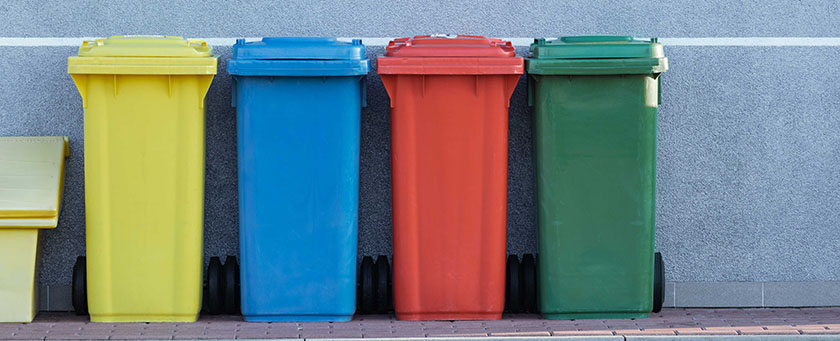
For over a decade, students, parents and community leaders have advocated for a sustainable alternative to Styrofoam trays. While the Board of Ed finally eliminated toxic styrofoam from school cafeterias, student lunches are now served on single-use, disposable molded fiber trays. These wares are expensive, wasteful and pedagogically dishonest and may put our children’s health at risk. There is a better solution – a reusable ware system!
EXPENSIVE: Each year, molded fiber trays and other disposable wares cost $62k to purchase, and another $39k is spent to dispose and incinerate this cafeteria waste. In total, over $101k of taxpayers’ money is tossed in the trash every year – this is not fiscally responsible!
WASTEFUL: Half a million non-recyclable trays are trashed and incinerated annually at a cost to taxpayers and the detriment of our soil and air quality. A pilot at New Lebanon School proved that a reusable ware system can cut 80% of cafeteria waste. It is time to stop our throw-away cafeteria culture!
DISHONEST: The use of disposables teaches our students that wasteful behaviors are acceptable. Instead of a throw-away cafeteria culture, GPS should model environmental sustainability and civic responsibility, values consistent with classroom lessons and the GPS Vision of the Graduate.
UNHEALTHY: Disposable wares can contain toxins, such as PFAS, associated with adverse health impacts. Manufacturers are not required to disclose the chemical content of products or inform consumers of changes in formulation. In an abundance of caution to our children’s health, GPS should replace disposables with safer reusable wares.
Why Is The Reuse Revolution In Jeopardy?
 There are currently two proposals under consideration for a reusable ware system: 1) individual dishwashers at each school and 2) a centralized dishwasher at a designated school. The BOE tasked the Superintendent and Administration to thoroughly vet both options and to present the most cost effective, sustainable and effective solution to the BET. However, Dr. Jones put forth a proposal to install dishwashers at every school without BOE approval. The Superintendent’s plan will cost over $1.1 million, has a 6-year timeline and lacks a successful outcome for all schools.
There are currently two proposals under consideration for a reusable ware system: 1) individual dishwashers at each school and 2) a centralized dishwasher at a designated school. The BOE tasked the Superintendent and Administration to thoroughly vet both options and to present the most cost effective, sustainable and effective solution to the BET. However, Dr. Jones put forth a proposal to install dishwashers at every school without BOE approval. The Superintendent’s plan will cost over $1.1 million, has a 6-year timeline and lacks a successful outcome for all schools.
On the other hand, the centralized proposal is estimated to cost $87k in capital and $34k in operating expenses – a total of $121k – and could be implemented within a year, with all schools participating. A similar system was successfully implemented at Palo Alto Unified School District, earning an annual net savings of $25k and preventing over four tons of waste every year. Yet, Dr. Jones and the Administration have not fully evaluated the centralized plan and continually make unsubstantiated excuses why it cannot work rather than exploring solutions to make it a success. Even the most basic research, an evaluation of possible kitchen sites, has not been undertaken to date. The process has been mismanaged, and taxpayer funds may be wasted as a result. We must demand a fair and thorough vetting, in order to make the responsible decision for the school budget and town finances, as well as our environment and students.

If you’re inspired to take action, write to your RTM members and let them know how you feel.
Got Something to Say?